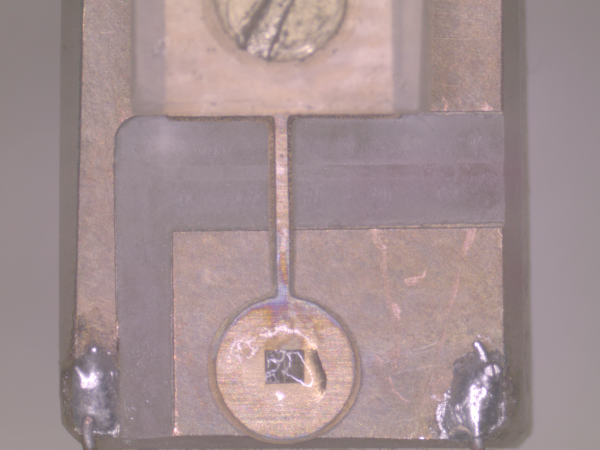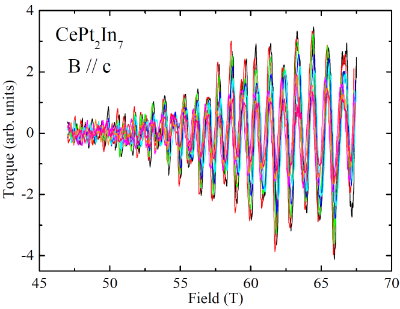Torque Magnetometry.
| FEATURES | TOULOUSE | DRESDEN | GRENOBLE | NIJMEGEN |
|---|---|---|---|---|
| Local Contact | David VIGNOLLES |
Toni Helm |
Ilya SHEIKIN |
Steffen WIEDMANN, Uli ZEITLER |
| Field range | 0 ... 90 T | 0 ... 90 T | 0 … 36 T | 0 ... 38 T |
| Temperature range | 0.5 K - 300 K (maximum field 90 T) 1.4 K – 300 K (maximum field 60 T or 70 T - rotating insert | 300 K down to 1.3 K. Lower temperatures down to ~0.6 K are possible using a ³He system with a 24mm bore coil (62 & 70 T). | 40 mK to room temperature | 0.3 ... 50 K (3He system) 1.4 … 380 K (flow cryostat) 0.05 ... 4 K (dilution refrigerator, on request) (Upper temperature limit depends on signal strength) |
| Sample size | Typically, 100 µm *50 µm*20 µm | The size of the cantilever is 50 µm x 120 µm, which requires samples of similar size. | Typically, small thin single crystals with a characteristic size from about 50 µm to 1 mm. The samples are mounted with a defined orientation | < 4 mm diameter, 1 mm height (other arbitrarily shaped samples can also be accommodated) Minimum sample sized limited by sensitivity The samples can be mounted with a defined orientation Sample weight limited by signal strength |
| Sensitivity | ~10⁻¹³ Am² [1] | ~10⁻¹³ Am² [1] | down to 10⁻¹² Nm | 10-9 J/T absolute |
| Typical experiment | torque measurement versus field for different temperatures or angles | The magnetic torque is preferably measured in magnets type A or B, but can be done in magnets D and E as well. | Field sweeps at constant temperature. Typical sweep rates vary from 50 to 200 G/s | magnetisation M (B,T,ϑ) Torque (B,T,ϑ) sweep rates (typical) 0.5 … 5 T/min |
| Sample Holder | mple is fixed (vacuum grease or epoxy) at the end of the cantilever beam (see picture) |  Typical sample attached to a cantilever (left) with a reference cantilever on the right.
Typical sample attached to a cantilever (left) with a reference cantilever on the right. |

Magnetic torque set-up with a sample mounted on the cantilever. The samples are fixed on CuBe cantilevers by a small amount of vacuum or apiezon grease. |
 |
| Sample environment | Gaseous helium from 300K down to 4K, liquid helium or ³He below | Gaseous helium from 300K down to 4K, liquid helium or ³He below | Dilution refrigerator, ³He cryostat, ⁴He cryostat, VTI. In-situ rotation | in-situ rotation available with ϑ=±100°(ϑ=0° field perpendicular to cantilever (see i and ii)) |
| Examples | /PhysRevLett.100.187005Jaudet C et al., PRL 100, 187005 (2008) Klein Y et al. Phys. Rev. B 97, 075140 (2018) C. Putzke et al.,Phys. Rev. Lett. 108, 047002 (2012) | Measurement Example: de-Haas-van-Alphen effect in CePt2In7
 Measurement Example: Oscillating part of the measured torque of CePt2In7
Measurement Example: Oscillating part of the measured torque of CePt2In7
 [1] E. Ohmichi and T. Osada, Rev. Sci. Instr. 73, 3022 (2002)
[1] E. Ohmichi and T. Osada, Rev. Sci. Instr. 73, 3022 (2002) |
Field-induced transitions and de Haas-van Alphen effect: D. Aoki et al., Phys. Rev. Lett. 116, 037202 (2016). | Triplon Bose–Einstein condensation New Journal of Physics 18, 033001 (2016) |

